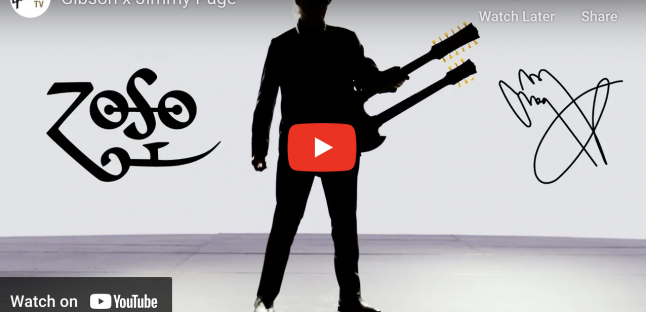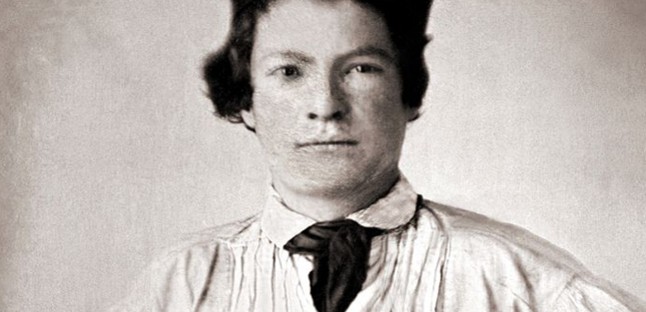Back to all posts
Latest posts
A masterclass in creating value
What’s going on at parkrun?
Virtue-signalling all the way to the bank
Bud Light: brand purpose or virtue-signalling?
The Coddling of the American Mind, by Greg Lukianoff and Jonathan Haidt
Belonging, by Owen Eastwood
Such a simple thing
The Long Win, and The Scout Mindset
The Cult of We by Eliot Brown and Maureen Farrell
Coffee and covid modelling
By theme
Marketing strategy
Insight & metrics
Innovation & inspiration
Brand & positioning
Marketing communications
Business purpose
Leadership
By industry sector
Financial services
Retail
FMCG
Technology & start-ups
Consumer services
Business to business
Other sectors
By type
Books
Comment
Quotes
Thought leadership
Two million dollars. That’s how much Paul Allen, co-founder of Microsoft, paid for Jimi Hendrix’s Fender Stratocaster, the one he played at Woodstock. Anyone can buy a Fender Stratocaster for around £1000, but only one person can have that one.
It’s not surprising then that replica guitars are good business. Guitar brand Gibson have made replicas of legendary Led Zeppelin Jimmy Page’s favourite guitars, and charged a premium for the first 50, each signed by the man himself. Read More
Look. Until now I always had to turn the cheese block sideways to grate it, then turn it back to slide it back into the packet. I will now buy this cheese because they’ve solved that tiny problem. It’s not the result of some genius invention or astonishing insight, just simple observation. Little things can make a difference. Read More
As the trial in the US begins of Elizabeth Holmes, briefly the world’s youngest billionaire, I’m reposting the piece I wrote about her two years ago. Her story starts with the kind of big hairy audacious goal that was lauded by business school gurus twenty years ago. It’s a story of an ambitious upstart challenging entrenched interests with vision and confidence. That all sounds great, so why was it wrong? More to the point, Read More
The pandemic, and the ever-changing guidance for social interaction, has led to rapid changes in people’s behaviour. While falling revenues make it tempting to cut budgets, reduce activity and save money, some businesses have seen opportunity in the chaos. Changing behaviour is always a business opportunity, if you know about it and can move fast in response. Here are three options to consider.
+ Process and service innovation
Enforced change doesn’t have to be for the worse. Read More
How much of the change that’s been forced on us by the pandemic will stick? What can businesses learn from it? The best way to answer that is to understand what makes people change their habits. Knowing that, businesses can enact change for mutual benefit without waiting for a crisis.
The BBC reported the case of a fish and chip shop which had offered a click and collect service for years to get people to pre-order, Read More
Innovation. Should you fail fast, or never give up? How can you tell a good idea, not yet solved, from a hopeless one? Elizabeth Holmes of Theranos never gave up. She named her invention the Edison, in honour of the American inventor of the lightbulb, Thomas Edison. He supposedly said, “I haven’t failed, I’ve found 10,000 ways it doesn’t work.”
Holmes’s company was reported to be worth $10 billion by 2013 and she was a paper billionaire. Read More
This week Coca Cola announced the launch of Coca Cola Energy. If you feel like you’ve heard this before, perhaps at some point in the last 32 years you’ve stumbled across Red Bull. Yep, it’s taken Coca Cola 32 years to launch their response to Red Bull, although they distribute Monster, in which The Coca Cola Company has a minority stake. Now they’re finally doing it for themselves, you might have expected something rather more inspiring. Read More
“There were two Santas at school today,” said my five-year-old. She was just coming to the end of her first term at school. My pleasure in hearing Santa had come calling was rather tempered by finding out there were two of the old fellas. How could they mess up so badly? They’ve ruined it for all those children. What do I tell her now? Before I could collect my horrified thoughts, she piped up again. Read More
Disruptive innovation seems easy for start-ups and feels threatening and difficult for established businesses. But they can do it too. Here are five guiding principles to help you.
First, think of being disruptive as an outcome, not a strategy. It’s rarely an end in itself. No, not even for Uber. I’m sure their funding pitch talked about being disruptive but the essence of the idea was using mobile technology to match capacity with demand in real time. Read More
“It ain’t what you don’t know that gets you into trouble. It’s what you know for sure that just ain’t so.”
Mark Twain, writer Read More
Back to all posts
Latest posts
A masterclass in creating value
What’s going on at parkrun?
Virtue-signalling all the way to the bank
Bud Light: brand purpose or virtue-signalling?
The Coddling of the American Mind, by Greg Lukianoff and Jonathan Haidt
Belonging, by Owen Eastwood
Such a simple thing
The Long Win, and The Scout Mindset
The Cult of We by Eliot Brown and Maureen Farrell
Coffee and covid modelling
By theme
Marketing strategy
Insight & metrics
Innovation & inspiration
Brand & positioning
Marketing communications
Business purpose
Leadership
By industry sector
Financial services
Retail
FMCG
Technology & start-ups
Consumer services
Business to business
Other sectors
By type
Books
Comment
Quotes
Thought leadership








